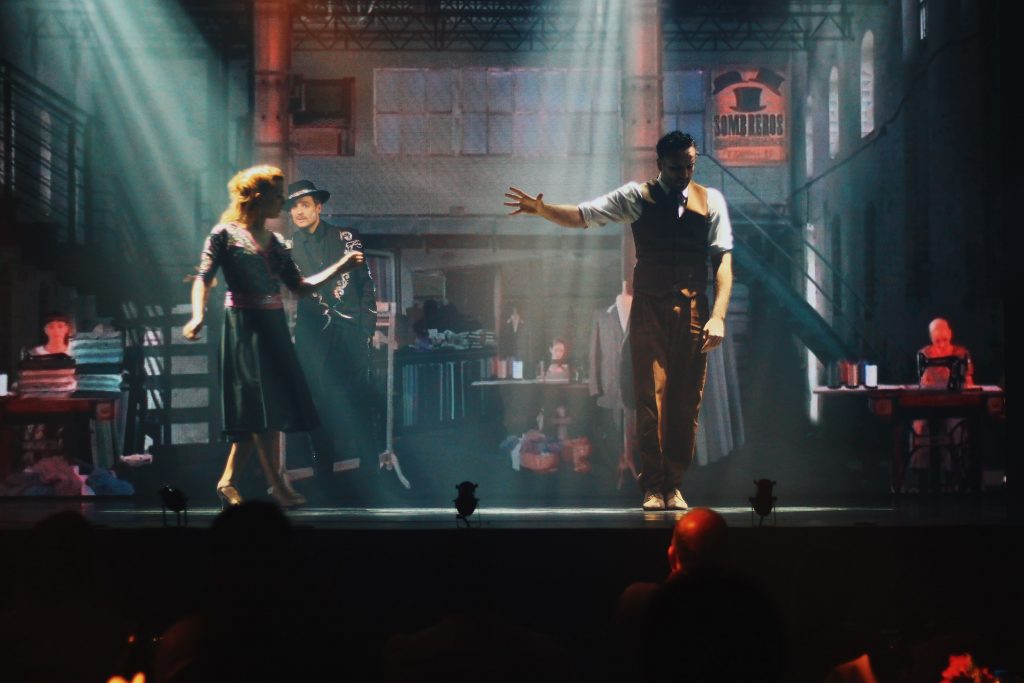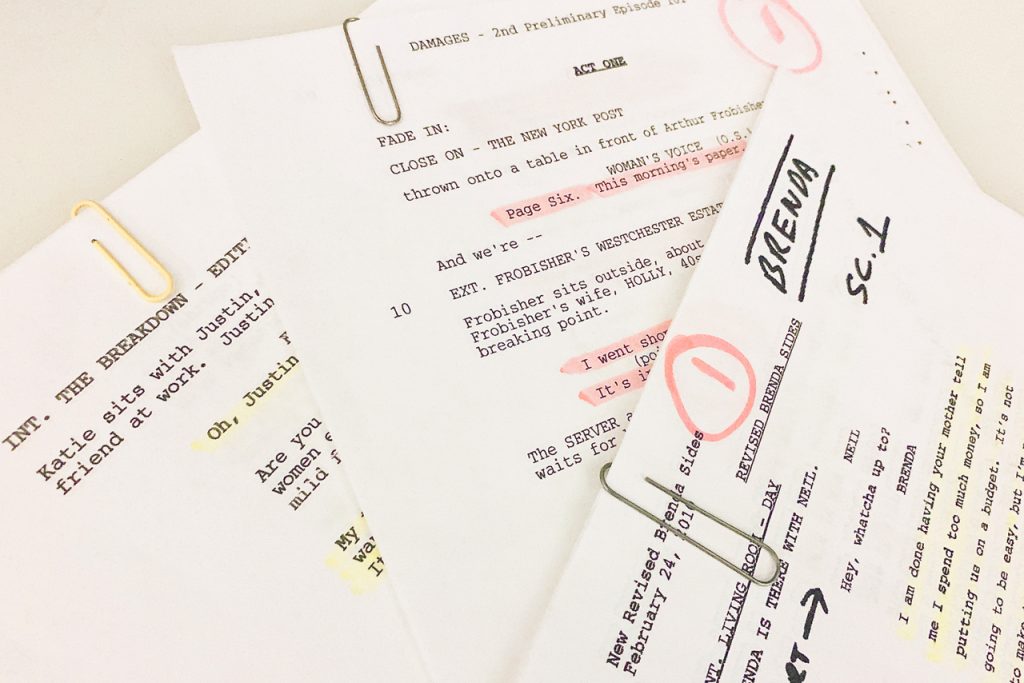This post may contain affiliate links, so I may receive a commission, at no cost to you, if you make a purchase through a link. Check out the disclosure for more info. And thank you for supporting free content!
Why Shakespeare Is Essential for Actors
Doing Shakespeare is one of the best things you can do for your acting career. Here’s why.
There is an old saying in theatre, “Once you can do Shakespeare, you can do anything.” Although studying Shakespeare as a new actor can feel daunting, I have found the adage to be true; it’s absolutely invaluable. Yes, there is the whole thing with good old Willie being the most renowned dramatist in the history of theater, but with the funny language, the extreme and intricate emotional swings and of course the iambic pentameter it doesn’t exactly make it an easy undertaking.
“The simplest way to put it,” says Scott Kaiser, Shakespeare scholar and director of company development at Oregon Shakespeare Festival. “If you’ve done ‘Merry Wives of Windsor,’ you can do ‘Modern Family,’ and if you’ve done ‘Richard III,’ then ‘Game of Thrones’ is fairly easy. A lot of Shakespeare really translates immediately into the other mediums if you work those muscles. If you can run a 26-mile marathon, you can certainly run the 5K.”
Early on in my acting career, when I decided to embark on spoken level voice training, I was slightly terrified when I found out we would be working with Shakespearean text – it turned out to be one of the best decisions of my life. Here’s why:

1. It teaches you how to really, truly understand the text, and how to find the clues and the subtle nuances and meaning within in the script.
There’s no way to fudge on this one; you simply don’t know the meaning of at least 50% of the words and have to look up the translations from ye-old-time-English to the modern day meanings. And to fully comprehend Shakespearean text you have to channel your inner Sherlock Holmes, since Shakespeare didn’t write much in the way of stage directions (apart from entrances and exits) or in depth character breakdowns. Instead, he left little clues within the text using punctuation, spelling, various forms of poetry and metaphors as hints to understanding the characters and their roles. This kind of in-depth script analysis is a phenomenal skill to learn, and is extremely useful when parsing modern day scripts.
Writers today may not seem to lean heavily on Shakespeare, but good writers, and most who make it to a TV show writer’s room are excellent, write scripts in such a way that show us characters’ behaviors, pasts, relationships and current scenarios in little clues rather then just laying it out in overly simplified language. Today, when I coach other actors, both young and old, I’ve noticed that many have no idea how to break down a script and parse it for clues. You can get so much more out of a script than many people imagine, but you just have to know how to look.

2. It forces you to clearly tell a story to an audience, despite the complex language – and no, you don’t get to change a word!
If you don’t truly understand what you’re saying, or the hidden subtext and meaning to the words, I can guarantee that the audience isn’t going to either. (and your first audience is the casting director!) It’s your job as an actor to convey the hidden meaning and the nuances of subtext – don’t rely on the audience to do this for you. While people may understand the individual words you are saying, the emotional connection just won’t be there if you are not connected to the text. If you can convey the emotion and story behind Shakespearean text to an audience, you’ll set modern day scripts on fire!

3. You will become masterful at being word-perfect and learning your lines!
There is no ad-libbing in Shakespeare! Zero. Zip. Nadda. None. There is no wiggle room, you don’t get to ad-lib, substitute words or drop a bit here and there – you just can’t. For most modern day plays, or film and television scripts (unless you are working with Quentin Tarantino) if you don’t get a line perfect, word for word, it’s not a big deal. Sometimes you may even be encouraged to improvise a bit. Not in Shakespeare. Not even a little bit. Even if you are a genius level writing talent, I doubt that you can just make up melodic iambic pentameter on the spot. (And if you can, seriously, that’s amazing! Go into writing, and you should DEFINITELY have that on your résumé!) Not to mention, it would also be a huge disservice to change what Shakespeare so flawlessly wrote almost 400 years ago. And if there is a single avid Shakespearean aficionado in the audience, and you change the text, they just might dead faint away on the spot!
Shakespeare line learning, as you can well imagine is no easy task. Perfecting this skill is like completing an ironman fitness challenge and shows enormous devotion to the craft and your ability as an actor.
Studying Shakespeare for me transformed my skills as an artist and truly changed my life. I developed a deep appreciation for writing and language. And a side bonus of working with this kind of text was that it was a catalyst for profound emotional breakthroughs. It has shaped the way I think and work as an actor, and I always find myself coming back to it as a home-base in my acting career. It seems scary at first because of the complexity, but like every other complex thing you have learned in your life, understanding makes it so much easier.
The intricacy of the language is what makes it beautiful. And like learning any new language, once you grasp the basics it becomes easier to understand. Try it. At least once, at least for a bit. You owe it to yourself as an actor. And I can guarantee, you’ll be glad you did!
COPY BY: Hunter Phoenix FEATURED IMAGE BY: Sierra Maciorowski | Pixabay
* Please Note: I am not an agent, manager, or casting director. I do not procure work for actors. All information, workshops and coaching are for educational purposes only and are not a guarantee or promise of employment. Thank you for being here!





